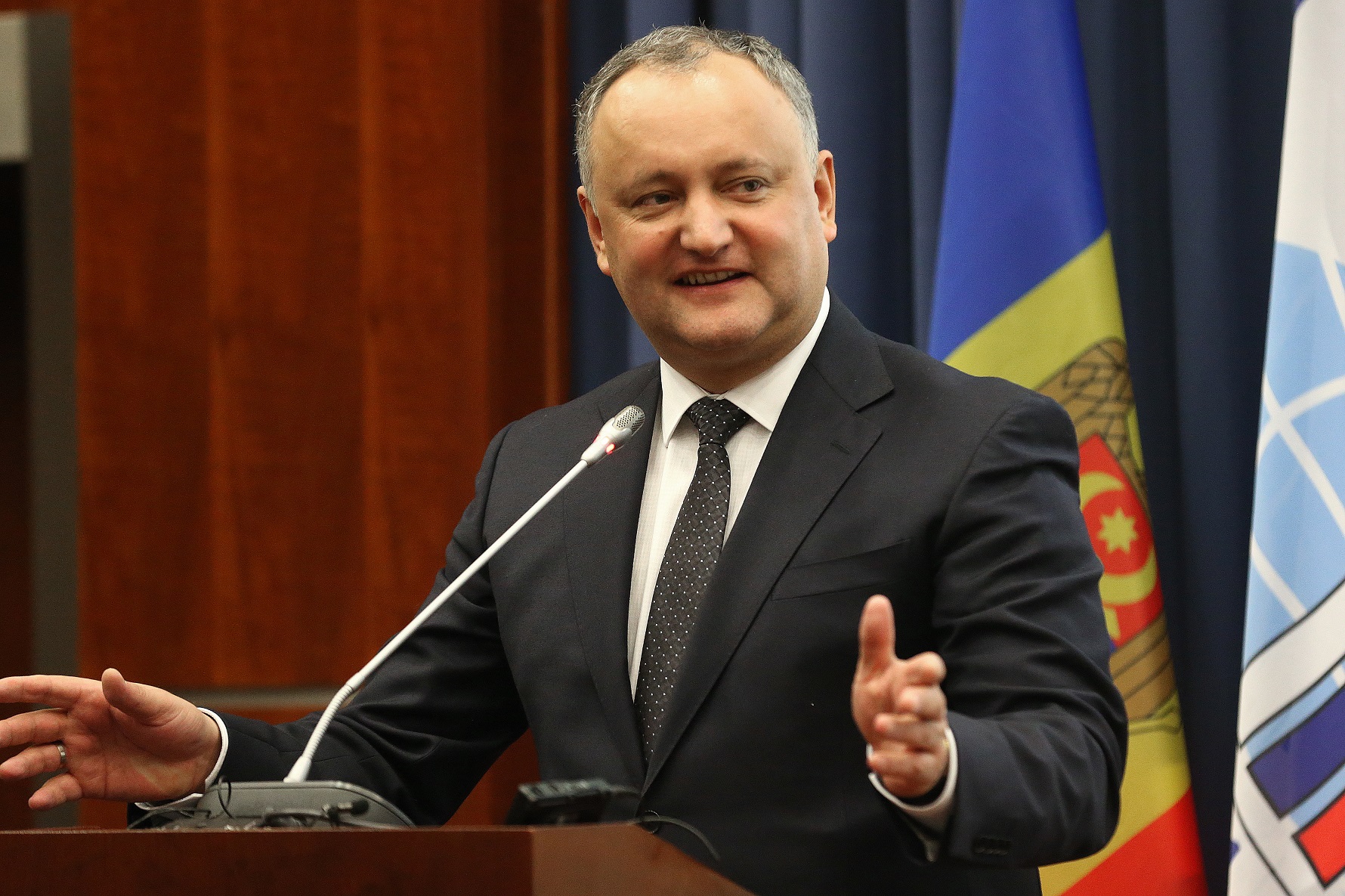ID :
434400
Thu, 02/02/2017 - 09:51
Auther :
Shortlink :
https://oananews.org//node/434400
The shortlink copeid
Moldova’s president sets in motion talks on trade cooperation with EU, Russia

CHISINAU, February 1. /TASS/. Moldova’s President Igor Dodon is planning to initiate negotiations on trilateral cooperation in trade with both the European Union and Russia during his upcoming visit to Brussels on February 6-7.
"We will suggest in Brussels that trilateral talks should be held with both the EU and Russia so as to make a decision on what to do with these customs duties (imposed by Russia - TASS). As Moldovan goods have become non-competitive due to these duties," Dodon said, speaking at the Moldovan-Russian business forum From Quality to Competitiveness, which opened in the Moldovan capital on Wednesday.
The Moldovan president emphasized that it is crucial for Moldova to get back to such trade relations with Russia that were in place before his country sealed a free trade deal with the EU. After the free trade agreement had been signed with the EU, exports to Russia have shrunk drastically, he said.
"Perhaps, we should have calculated better on how much it would cost to our economy," Dodon added.
Earlier, Dodon pointed out that he was set to inform EU officials about his fellow country people’s expectations frustrated after the free trade agreement with the EU.
In the meantime, Russia’s trade representative to Moldova Vladislav Darvay said that Russia feared EU goods re-exports via Moldova.
"Russia pursues a trade policy with each country separately and is not interested in European goods to be packed in Moldova and exported to Russia as Moldovan. There have been some cases and we will be fighting this policy with all available means," Darvay said, reminding of EU sanctions against Russia.
"Russia must protect its market. We have set a task to substitute import, improve our country’s agriculture so as to create more jobs but uncontrolled flows of goods are hampering our plans," the trade envoy said.
During the forum, Russian and Moldovan business people discussed efficiency of the agricultural industry and investment opportunities of the two countries’ industrial sectors and the sector of services and infrastructure.
Read more





